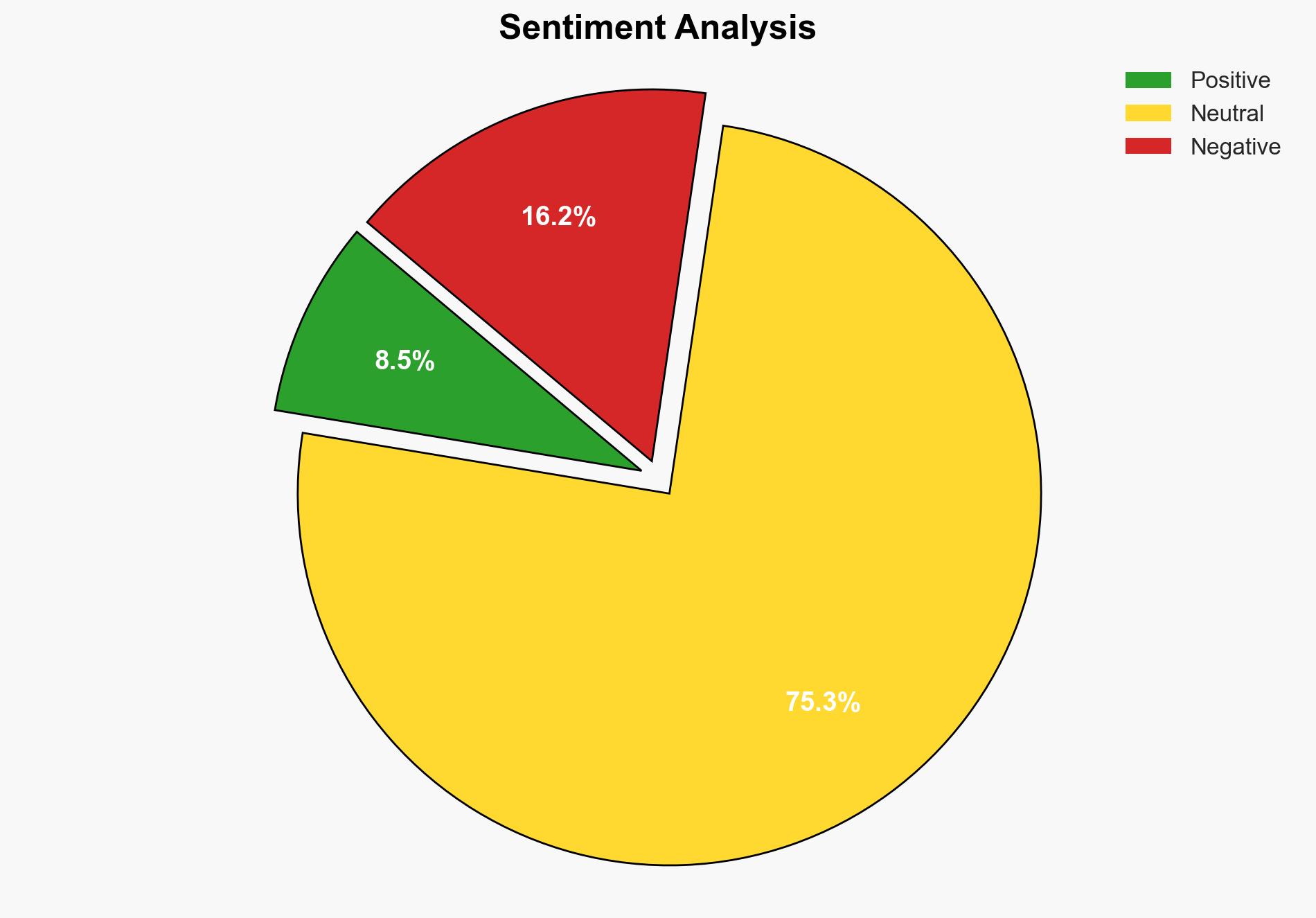Mass exploitation campaign hit 4000 ISP networks to deploy info stealers and crypto miners – Securityaffairs.com
Published on: 2025-03-04
Intelligence Report: Mass Exploitation Campaign Hits 4000 ISP Networks to Deploy Info Stealers and Crypto Miners
1. BLUF (Bottom Line Up Front)
A mass exploitation campaign has targeted approximately 4000 ISP networks, primarily in Eastern Europe, to deploy information stealers and cryptocurrency miners. The threat actors utilized weak credential brute force techniques to gain access to systems, subsequently deploying crimeware with capabilities such as data exfiltration and persistence. The campaign’s minimal intrusive operations suggest a sophisticated approach to avoid detection. Immediate measures are required to enhance cybersecurity protocols and monitor ISP network activities closely.
2. Detailed Analysis
The following structured analytic techniques have been applied for this analysis:
SWOT Analysis
Strengths: The ability of ISPs to detect and respond to threats can be leveraged to mitigate future attacks.
Weaknesses: Weak credential management and insufficient monitoring tools increase vulnerability.
Opportunities: Strengthening cybersecurity frameworks and international collaboration can reduce risks.
Threats: Continued exploitation could lead to significant data breaches and economic losses.
Cross-Impact Matrix
The exploitation campaign in Eastern Europe may influence cybersecurity policies in neighboring regions, prompting increased security measures and collaboration efforts. The use of cryptocurrency miners could also impact the global cryptocurrency market.
Scenario Generation
Best-case scenario: Rapid identification and neutralization of the threat actors, leading to improved cybersecurity measures.
Worst-case scenario: Prolonged exploitation resulting in widespread data breaches and financial losses.
Most likely scenario: Incremental improvements in security protocols with occasional breaches continuing.
3. Implications and Strategic Risks
The campaign poses significant risks to national security, regional stability, and economic interests. The use of brute force attacks and sophisticated malware indicates a high level of threat actor capability. The potential for data exfiltration and financial theft could undermine public trust in ISPs and impact economic stability.
4. Recommendations and Outlook
Recommendations:
- Enhance credential management practices and implement multi-factor authentication across ISP networks.
- Invest in advanced threat detection and monitoring tools to identify and respond to intrusions swiftly.
- Foster international collaboration to share intelligence and develop unified cybersecurity standards.
Outlook:
Best-case: Enhanced security measures lead to a significant reduction in successful exploitation attempts.
Worst-case: Continued vulnerabilities result in ongoing exploitation and financial losses.
Most likely: Gradual improvements in security practices with occasional breaches.
5. Key Individuals and Entities
The report references the Splunk Threat Research Team and mentions the use of tools such as Python and PowerShell. It also highlights the involvement of a Telegram bot for data exfiltration.





